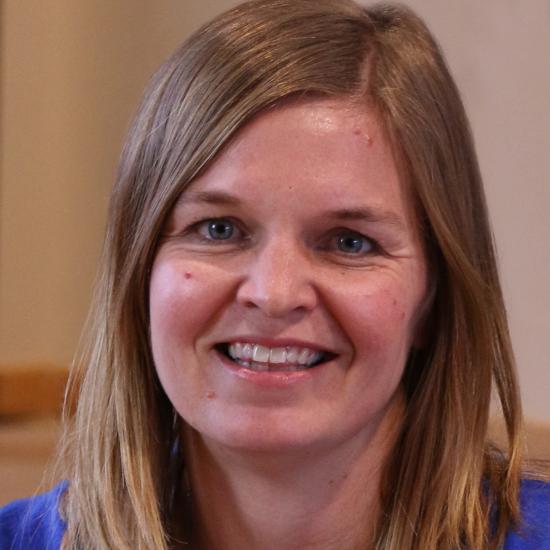Hello Fellows: Meet Melanie Ferris
Wilder employees have the opportunity to apply for Kingston Fellowships, an honor awarded annually based on accomplishments, commitment to human services and leadership potential. In March 2016, Wilder awarded fellowships to 11 employees spanning a variety of professional backgrounds. The fellowships help these professionals to study, teach, conduct research, exchange ideas and develop innovative programs to address community concerns.
In “Hello Fellows,” we introduce the 2016 Kingston Fellows. This week, we catch up with Melanie Ferris.
What is your role at Wilder?
My role as a research scientist in Wilder Research involves leading evaluation and research projects focused on community health and children’s mental health. Recently I’ve been working with hospitals and health care systems to conduct community health needs assessments. Another project I just finished involved looking at the implementation of the bicycle plans for Minneapolis and Saint Paul from an equity standpoint. We examined who has access to bikeways and who doesn’t, while recognizing that sometimes there are more pressing priorities in communities and putting a bikeway there doesn’t eliminate barriers to physical activity.
Tell us about your background before coming to Wilder Research.
Before coming to Wilder Research, I had earned a master’s degree in public health at the University of Minnesota. My interest was in mental health as a public health issue. I didn’t think I would be involved in mental health research; I thought I’d be involved in public policy work. When I was in grad school, I had internships with NAMI (National Alliance on Mental Illness) and the Department of Human Services to become more aware of mental health issues and gain experience in policy and advocacy work.
Prior to grad school, I had worked with adults with mental health issues and developmental delays, helping them to live as independently as they can in the community. Through my work I started to see policy and system issues that pose a lot of barriers to the clients I was working with.
What will you use the Kingston Fellowship to achieve?
I’m doing independent research to explore how social determinants impact mental health and well-being. Social determinants are the conditions where we live, work, play and age. They impact the availability of resources in neighborhoods and how we interact with one another. These conditions also impact the choices we make about health.
Social determinants are shaped by policies and practices that influence how money, power and resources are distributed. In the Twin Cities, inequities are the result of policies that have routinely advantaged some communities while disadvantaging other communities, largely lower-income residents and people of color, through disinvestment and discriminatory policies. Looking at social determinants is one way of thinking more holistically about all the factors that impact health and well-being.
This Fellowship will help me better able to articulate these connections between where people live and their mental health.
The Kingston Fellowships are aimed at filling unmet needs in the field of human services and human services research. What unmet need is your fellowship filling?
We hear a lot about how poverty and housing can affect physical health, but it’s only been very recently that’s been talk about how those conditions affect your mental health and well-being. When someone comes to get therapy, if they aren’t living in an environment where recovery is supported, that puts a whole host of barriers to their recovery and overall well-being.
My goal is that that we’re thinking about health holistically. I think it’s creating a broader understanding and encouraging more people to consider mental health when they’re considering how poverty and housing affects the health of people.
Do you have an experience about diversity and cultural competence that you have encountered in your work?
This November I’m going to attend the Facing Race conference in Atlanta. It’s coming out of work that I’ve been doing with the Center for Prevention at Blue Cross and Blue Shield of Minnesota. We’re starting year four of a five-year project where we’re working with organizations that have been funded to advance health equity.
Through this work I have learned a lot about health equity, and this conference will be a time when I’m can think about it personally rather than from the lens of an evaluator for a project.
Melanie Ferris, a research scientist at Wilder Research, manages a portfolio of applied research and evaluation projects focused primarily in the areas of public health and children’s mental health.
